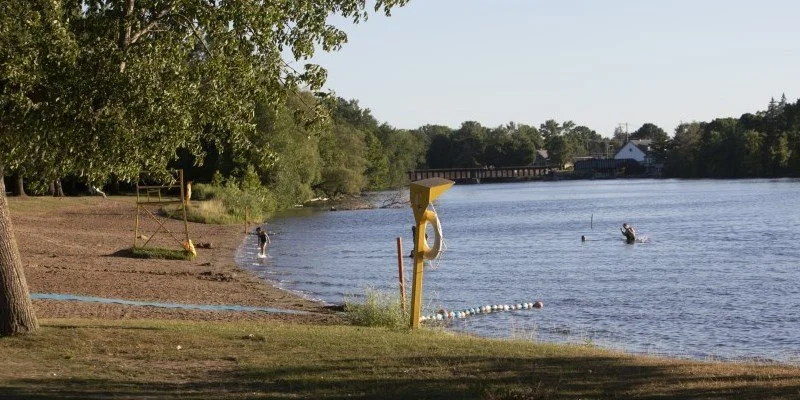Rogers Cove and Beavermead Beaches To Remain Closed After Peterborough Public Health Confirms Presence of Blue-Green Algae
/Rogers Cove and Beavermead beaches are remaining closed after Peterborough Public Health (PPH) has confirmed the presence of blue-green algae in the waters as reported on Monday afternoon.
File photo.
The closure is to protect the health and safety of the public and pets according to PPH.
The Ministry of Environment, Conservation and Parks (MECP) sampled the beach at Rogers Cove after the first reports of suspected blue-green algae at both Rogers Cove and Beavermead beaches on July 14. Last Friday, the MECP confirmed its presence at Rogers Cove.
“We’ve received confirmation that the algae observed at local beaches on July 14 is a harmful blue-green algae bloom,” said Julie Ingram, PPH manager of environmental health. “Elevated levels of toxins associated with blue-green algae have been detected and the beaches will remain temporarily closed.”
The MECP confirmed this sample had a total microcystin toxin amount of 169 µg/L, exceeding Health Canada’s recreational water limit of 10 µg/L on Monday. Additional samples are being collected from both beaches Monday with results anticipated by the end of this week as stated by the PPH.
The algae pose no immediate risk to Peterborough or Lakefield’s municipal drinking water supplies according to the PPH. Exposure to toxins such as drinking, swimming and bathing can cause illness and discomfort. Common symptoms include itchy, irritated eyes and skin, rash, headache, fever, diarrhea, abdominal pain, nausea, and vomiting.
Pets and farm animals that consume contaminated water may experience sickness or death. The risk to humans is primarily from drinking water that has been contaminated with toxins from a dense harmful algae bloom. Long-term consumption containing high levels of cyanobacterial toxins may cause neurological or liver problems.
Residents downstream of Little Lake are encouraged by the PPH to monitor water for blue-green algae. Dense blooms can make the water look like a bluish-green pea soup or a shiny paint slick. Fresh blooms often smell like fresh-cut grass while older blooms can have a strong septic- or garbage-like odour. To report suspected blue-green algae bloom, contact the MECP Spills Action Centre at 1-800-268-6060.
If algae blooms are visible:
Do not use the water for drinking, food preparation, bathing, showering or swimming use.
Do not allow children, pets, or livestock to swim in or drink the water.
If skin contact does occur, wash with soap and water or rinse thoroughly with clean water to remove the algae.
Do not boil the water. Boiling will not remove the toxins and may release more of the toxin into the water.
Residents should avoid cooking with the water because food may absorb toxins from the water during cooking.
Fishing is generally considered safe and there is a low risk to human health from eating fish caught during a peak blue-green algal bloom condition.
Be aware that home treatment systems for water may not remove toxins and may become clogged.
Do not treat the water with a disinfectant such as chlorine bleach. This action may break open algal cells and release toxins into the water.











